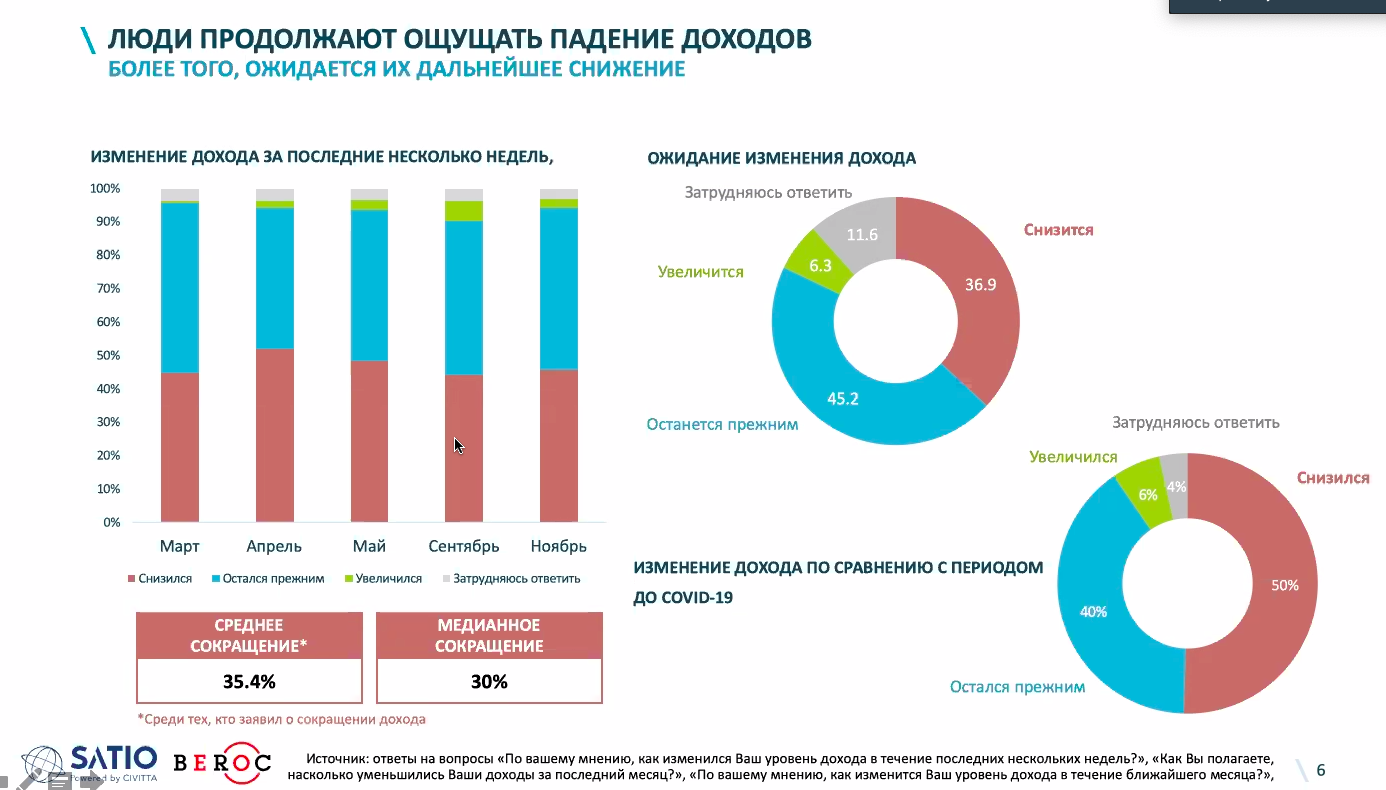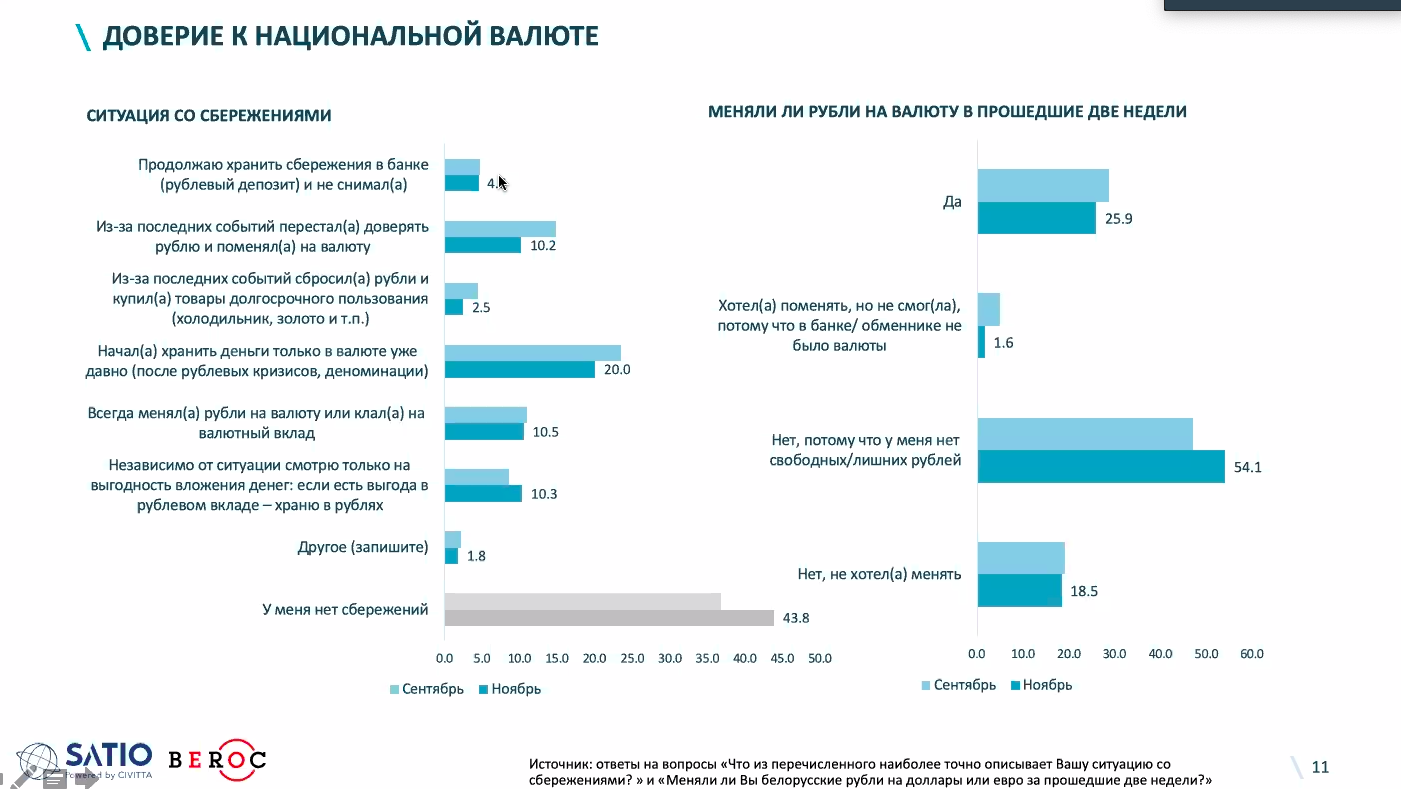Even IT sector: 50% of Belarusians had income drop in 2020

Money / Euroradio
SATIO, together with the independent research center BEROC, have once again asked a thousand residents of Belarus about the coronavirus, income and the future. Did the second wave of coronavirus hit harder than the first? How has income changed? Is the work process strongly affected by the threat of detention of employees?
This is what the Belarusians answered.
The main concern is the collapse of the healthcare system
As many as 73% of respondents are confident that the situation with COVID-19 in Belarus will worsen in the near future. In November, the forecasts of Belarusians are more pessimistic than they were in September and May.
Even more people began to fear the collapse of the health care system and the introduction of strict quarantine. Also among the alarming consequences are lower wages and a shortage of medical supplies.
Belarusians continue to feel the drop in income
Every other responden noted that their income has decreased compared to the period before the COVID-19 pandemic. Only 6% said their wages had increased.
On average, the Belarusians surveyed believe that their income has decreased by 30% over the past month. Almost 37% of respondents expect it to decline further. Only 6.3% of Belarusians are positive about the future.
The main reason for the decline in income, according to the respondents, is the change in the ruble exchange rate. Also, in comparison with spring, Belarusians began to face layoffs and cancellation of wage increases more often. On the positive side, the problem of reduced number of orders and customers is no longer as acute as in April-May.
Salaries are going down even in IT
Employees in education, agriculture, computer services and ... IT are more likely to feel the drop in income. For example, 72.7% of educational workers and 51.3% of IT workers noted a decrease in wages. Entrepreneurs, self-employed people, employees of hotels and restaurants, trade and repairs specialists also felt the drop in income.
The situation with salaries in transport and communications, services, construction and healthcare is improving.
Savings won't last long
As many as 31.5% of Belarusians said that in case of income loss they will have enough savings for less than a month. Only 7.6% of the respondents are ready to live on savings for six months or longer.
In the fall, Belarusians began to trust the national currency even less and more often transfer their savings into euros and dollars. Four percent of respondents keep their money in a bank, 20% have long been transferring their savings into foreign currency, 43.8% have no savings at all.
Business fears a worsening epidemiological situation
The main problems that small and medium-sized businesses are currently facing are falling demand in the domestic market, instability of the national currency and an increase in accounts receivable.
Enterprises are first of all afraid of a worsening epidemiological situation. For example, more than 40% of construction, creative, sports, entertainment and retail workers are confident that the second wave will affect their activities more than the first wave.
Other concerns of enterprises include falling incomes of the population, macroeconomic instability and changes in government policy towards business.
IT specialists are worried about the detention of employees
A new alarming factor for Belarusian enterprises is the threat to the safety and detention of employees. Such risks are of the greatest concern to workers in the field of information and communications, IT, professional, scientific and construction activities.
Less often concerned about detentions are those employed in the arts, sports, entertainment and recreation. As for the regions, judging by the responses of the respondents, this problem is most often encountered in Minsk and the Minsk region, least of all - in Mahiliou and Vitsebsk.



















